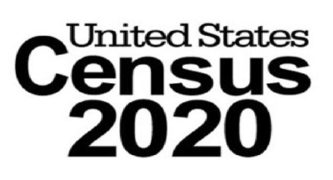
There have been several activist-led lawsuits seeking to reverse the Trump administration’s decision to add a question about citizenship on the census questionnaire for the first time in history. The latest comes from Voice Of America:
A second federal judge has ruled that the Trump administration’s decision to add a citizenship question to the 2020 U.S. census is illegal. Judge Richard Seeborg in San Francisco said Wednesday that the government’s move was arbitrary and capricious and would violate a constitutional requirement that the census count everyone in the country.
Seeborg said evidence showed the question would result in a significant undercount of non-citizens and Latinos. The effect of his decision is limited. A federal judge in New York had previously blocked the administration from adding the question to the population count, and the U.S. Supreme Court last month agreed to review that decision. An email to the U.S. Department of Justice was not immediately returned.
The census is a count of the population recurring every ten years in America as mandated in by Article I, Section 2 of the United States Constitution. It is used, among other things, to calibrate the election system to accommodate for changing population over time.
Often overlooked, the census is vitally important to American election law. Many of the key historical American failures and successes involving Native American rights, African-American rights and now immigrant rights take place as legal battles concerning the census. One only need to review the curious wording of the relevant areas of the Constitution to understand that much.

The House of Representatives shall be composed of Members chosen every second Year by the People of the several States, and the Electors in each State shall have the Qualifications requisite for Electors of the most numerous Branch of the State Legislature.
No Person shall be a Representative who shall not have attained to the Age of twenty five Years, and been seven Years a Citizen of the United States, and who shall not, when elected, be an Inhabitant of that State in which he shall be chosen.
Representatives and direct Taxes shall be apportioned among the several States which may be included within this Union, according to their respective Numbers, which shall be determined by adding to the whole Number of free Persons, including those bound to Service for a Term of Years, and excluding Indians not taxed, three fifths of all other Persons. The actual Enumeration shall be made within three Years after the first Meeting of the Congress of the United States, and within every subsequent Term of ten Years, in such Manner as they shall by Law direct. The Number of Representatives shall not exceed one for every thirty Thousand, but each State shall have at Least one Representative; and until such enumeration shall be made, the State of New Hampshire shall be entitled to chuse three, Massachusetts eight, Rhode-Island and Providence Plantations one, Connecticut five, New-York six, New Jersey four, Pennsylvania eight, Delaware one, Maryland six, Virginia ten, North Carolina five, South Carolina five, and Georgia three.
When vacancies happen in the Representation from any State, the Executive Authority thereof shall issue Writs of Election to fill such Vacancies.
The House of Representatives shall chuse their Speaker and other Officers; and shall have the sole Power of Impeachment.
Leave a Reply